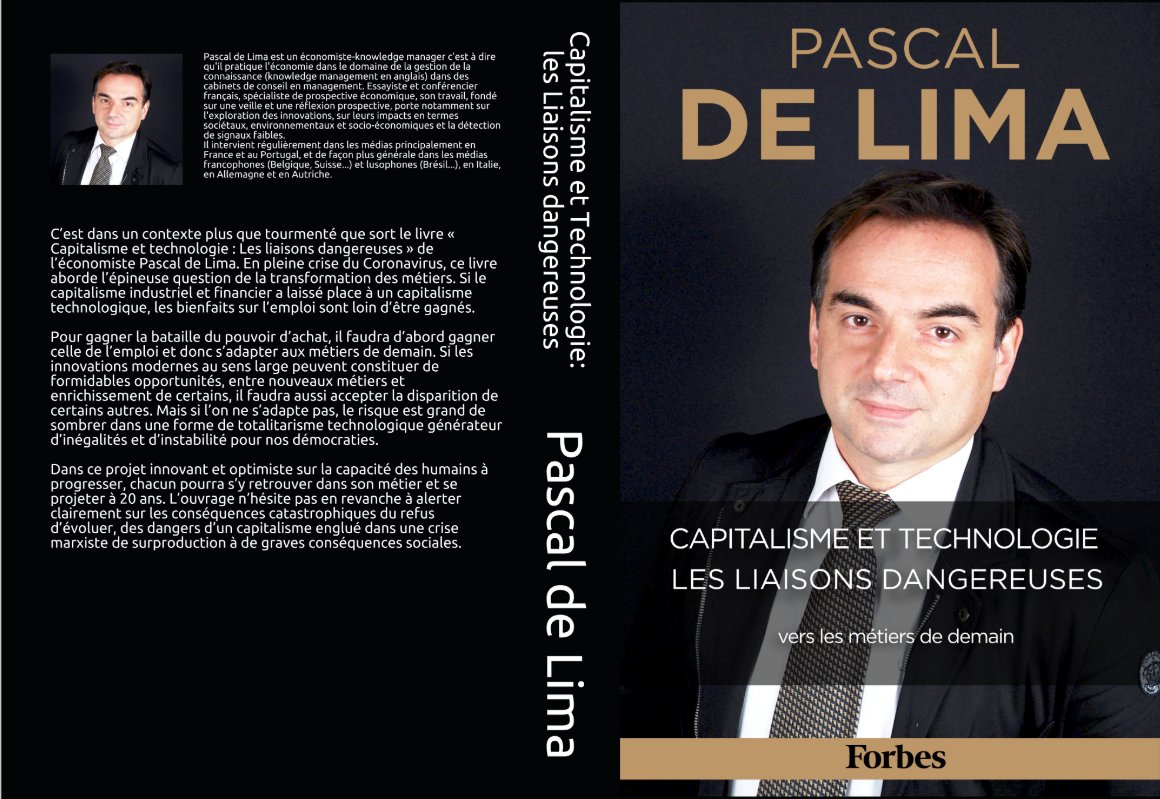Publication of the latest book by Pascal de Lima, aivancity associate professor in the economics of innovation

Publication of the latest book by Pascal de Lima, aivancity associate professor in the economics of innovation : Capitalism and Technology: Dangerous Links - TowardsTomorrow'sJobs
In his book "Capitalism and Technology: Dangerous Links – Towards Tomorrow's Jobs", published by Forbes, he examines the question of the transformation of professions from the point of view of innovation. He analyzes the changes, breaks down preconceived ideas and gives clues so that technologies and careers can grow together. His book offers a necessary insight into the professional world of tomorrow.
Digital and new technologies have invested our personal and professional lives. They are undeniableaids and increased performance levers (AI, data, robotization, automation...), yet they are transforming professions and thwarting current career prospects. While companies have already launched their technological revolution, the question of the evolution of professions still seems to be in its infancy. At issue: the difficulty of projecting oneself and apprehending what will really change in the field. Yet this reflection represents a major challenge in the balance of the social economy.
The automation of many tasks raises questions about the sustainability of certain professions. According to Pascal de Lima, "Routine and manual jobs are more likely to disappear. "This beingsaid, for our economist, "Not all professions will necessarily disappear, but they will be transformed and enriched in the years to come. Others, on the contrary, will blossom". The demand for data is a good example of this: "It is above all the analysis and interpretation professions that will be preserved. »
Pascal de Lima states that the biggest obstacles to career progression are reluctance to change and lack of anticipation. Companies must therefore start working on career development now. Pascal de Lima reminds the techno-skeptics that the most brilliant innovation is impossible without the help of mankind. Empathy, humor, sound judgment, values... are all elements that do not fit into a parameterization. His argument is as follows: not only does technology need experts to emerge, but its emergence also generates employment (analysis, ethics, legality, human supervision, forecasting, specialization, monitoring...) Provided you are trained! It is the human being who brings value to technologies and not the otherway around. In his book, Pascal de Lima gives concrete examples, such as that of chartered accountants: the automation of certain tasks will redirect their missions towards relevance, interpretation, financial analysis... The professions that will be transformed will offer professionals time to devote themselves to more rewarding missions.
The big winner of this technological-professional challenge will undeniably be the duo: constant training and emotional skills. One innovation will drive out the other, soitwillbenecessary to go fast and acquire new skills on a regular basis. Certain soft skillsthat have been on the rise in recent years will become essential:adaptability, interpersonal skills, creativity, analytical skills, and anticipation. Coupled with on going training to keep up with business developments, they will help professionals to take the technological shift that has begun. The increase in skills will then promote social equality.
Instead of opposing technology and people, Pascal de Lima reconciles these two forces, demonstrating how both can coexist in a virtuous dynamic, provided that man and his values are always placed at the center of the system.

